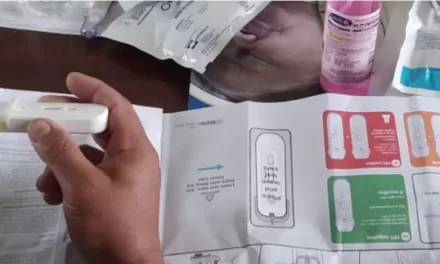Based on latest available data, the risk of TTS with Vaxzevria and Covishield vaccines appears to be very low. Data from the UK suggest the risk is approximately four cases per million adults (1 case per 250 000) who receive the vaccine, while the rate is estimated to be approximately 1 per 100 000 in the European Union (EU). Countries assessing the risk of TTS following COVID-19 vaccination should perform a benefit-risk analysis that takes into account local epidemiology (including incidence and mortality from COVID-19 disease), age groups targeted for vaccination and the availability of alternative vaccines.
Work is ongoing to understand risk factors for TTS. Some investigators have looked into rates of TTS by age2. GACVS supports further research to understand age-related risk because while available data suggest an increased risk in younger adults, this requires further analysis. On the issue of sex-related risk, although more cases have been reported in females, it is important to underscore that more women have been vaccinated and that some TTS cases have also been reported in men. Therefore, further analysis is required to determine any sex-related risk. GACVS recommends further epidemiological, clinical and mechanistic studies to fully understand TTS.
Thrombosis in specific sites (such as the brain and abdomen) appears to be a key feature of TTS. Clinicians should be alert to any new, severe, persistent headache or other significant symptoms, such as severe abdominal pain and shortness of breath, with an onset between 4 to 20 days after adenovirus vectored COVID-19 vaccination.
At a minimum, countries should encourage clinicians to measure platelet levels and conduct appropriate radiological imaging studies as part of the investigation of thrombosis. Clinicians should also be aware that although heparin is used to treat blood clots in general, administration of heparin in TTS may be dangerous, and alternative treatments such as immunoglobulins and non-heparin anticoagulants should be considered.
There may be a geographic variation in the risk of these rare adverse events. It is therefore important to evaluate potential cases of TTS in all countries. Countries are encouraged to review, report and investigate all cases of TTS following COVID-19 vaccinations. Countries should assess cases according to the presence of thrombosis with thrombocytopenia and the time to onset following vaccination, using the Brighton Case Definition of TTS.
Whilst we have some information on Comirnaty, Moderna (mRNA-1273), Vaxzevria and Covishield vaccines, there is limited post-market surveillance data on other COVID-19 vaccines and from low- and middle-income countries. GACVS highly recommends that all countries conduct safety surveillance on all COVID-19 vaccines and provide data to their local authorities and to the WHO global database of individual case safety reports. This is urgently needed to support evidence-based recommendations on these life-saving vaccines.
Open, transparent, and evidence-based communication about the potential benefits and risks to recipients and the community is essential to maintain trust. WHO is carefully monitoring the rollout of all COVID-19 vaccines and will continue to work closely with countries to manage potential risks, and to use science and data to drive response and recommendations.











